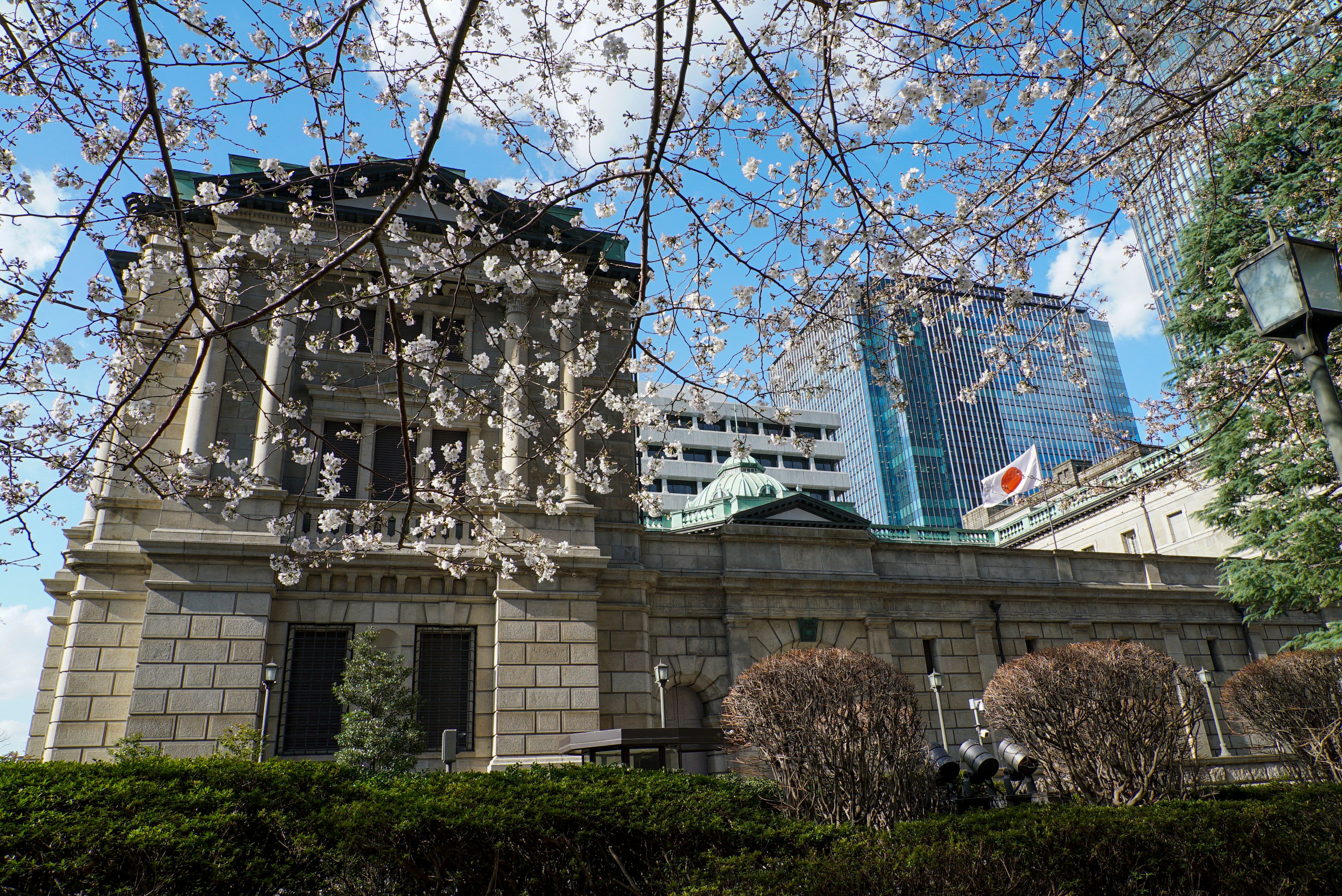- The Bank of Japan held its two-day monetary policy meeting from April 27 to 28.
- Economists polled by Reuters widely expected the central bank to maintain its negative interest rates at -0.1% and make no changes to its yield curve control program.
The Bank of Japan (BOJ) headquarters is seen beyond the cherry blossoms on March 20, 2023 in Tokyo.
Kazuhiro nogi | Afp | Getty Images
Bank of Japan It did not change its interest rates In the first policy meeting of newly appointed Governor Kazuo Ude.
The decision was in line with economists’ expectations that the benchmark interest rate would remain unchanged at -0.1% since the central bank took rates below zero in 2016.
The central bank kept the tolerance range for 10-year Japanese government bonds unchanged at 50 basis points above and below its target of 0%.
In December, the central bank shocked global bond markets by widening the tolerance limit on 10-year Japanese government bonds from 25 basis points to 50 basis points above and below 0%.
The Japanese yen fell roughly 0.8% to 134.75 against the US dollar after the announcement. The yield on the 10-year JGB fell to 0.425%.
While maintaining current policies, the Bank of Japan said it had “decided to conduct a broad-based review” of its easing measures.
The central bank said the planned time frame for the review would be one to one-and-a-half years.
“Achieving price stability has been a challenge for 25 years,” the central bank said, adding that its monetary policy “has interacted with and influenced broad areas of Japan’s economic activity, prices and the financial sector.”
From a separate perspectiveThe central bank forecasts inflation for all items except fresh food and energy to be around 2.5% in fiscal 2023 and 1.5% to 2% in 2024 and 2025.
Ueda has previously stressed that inflation must be “very strong and close to 2%” – the central bank’s target – before making any changes to yield curve control policy.
Despite market expectations that the central bank would further expand its yield curve control tolerance or scrap the program altogether, the central bank stood by its current policies.
“Bank will continue with QQE (Quantitative and qualitative monetary easingWith yield curve control, it aims to achieve the price stability target necessary to sustainably maintain that target,” it said in its view.
“The central bank will not hesitate to take additional easing measures if necessary,” it added.
Amy Xie Patrick, head of income strategies at asset management firm Pendel, predicted the central bank would abandon the YCC rather than expand its tolerance limit.
“I think the next move they’ll make in terms of YCC will be abandonment. But the path to that has to be to let the markets know that they care about the markets functioning.” Xie Patrick told CNBC’s “Street Science Asia.”
Inflation in Japan’s capital edged higher in April, according to government data released Friday ahead of the BOJ decision.
The consumer price index in Japan’s capital rose 3.5% in April, beating forecasts for a 3.2% increase in a Reuters poll. That figure was slightly higher than the 3.2% reading in March.
Excluding fresh food and energy, Tokyo’s consumer price index rose 2.3% in April – slightly above the central bank’s inflation target of 2%. Inflation in Tokyo is a leading indicator of the nationwide trend. Japan’s national core CPI was 3.1% in March.
Meanwhile, Japan’s unemployment rate rose to 2.8% in March from 2.6% in February, government data showed. That was 2.5% higher than Reuters’ forecast and marked the highest reading since January 2022.
The country’s jobs-to-applicants ratio was 1.32, below Reuters’ estimate of 1.34.
“There is some uncertainty in the Japanese real economy, but at the same time, inflationary pressures are becoming more immediate,” Hiromi Yamaoka, a former Bank of Japan official and current head of the Future Research Institute, told CNBC’s “Squawk Box.” Asia” on Friday ahead of the announcement.
“It’s a difficult situation, but the BOJ should focus on price stability as the central bank’s primary objective,” Yamaoka said, adding that the central bank should focus more on inflationary pressures than the real economy.
“They cannot continue with the current extraordinary intervention in the JGB market” to defraud both, Yamaoka said.

